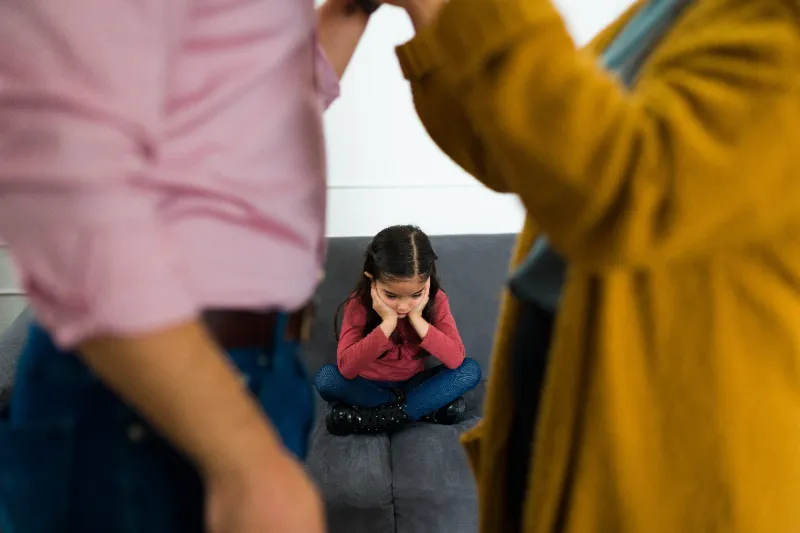
When it comes to navigating custody disputes in Kentucky, protecting the rights and interests of yourself and your children is paramount. Often, the first step toward doing so is having a basic understanding of Kentucky child custody laws so you know what you can expect moving forward.
There are different types of child custody that the Kentucky courts can award. It is important to familiarize yourself with them if you are going through a divorce as child custody will be an issue that you must resolve.
Today, we will go over the different types of child custody in Kentucky and what you need to know about them. Keep reading to learn more and see how the Law Office of Pamela C. Bratcher can help you fight for your family.
Kentucky Custody Laws: Types of Custody
To begin, it’s important to recognize that there are several different types of custody that are recognized under Kentucky law. Below is a brief overview of each type.
Physical Custody
Physical custody refers to the parent who will have physical control over the child on a day-to-day basis, which includes taking care of the child’s needs.
Legal Custody
Conversely, legal custody refers to a parent’s right to make important decisions on behalf of the child, including religious, educational, cultural, and health decisions.
Custody can also be temporary or permanent, depending on the factors of your case. The court typically awards temporary custody during a paternity or divorce case. A temporary custody award will lead to a contested hearing where a judge will then decide to give permanent custody to one or both parties.
Sole Custody
Custody can also be classified as sole or joint.
In a sole legal custodial situation, only one parent is granted the ability to make medical, educational, religious, cultural, and other decisions for the child without needing to consult the other parent.
Joint Custody
Joint custody, on the other hand, is where both parents decide what is right for their children together. Often, one parent will be the primary residential parent, or the parent that the child lives with most of the time. Still, both parents are given the right to make decisions for the child.
How Do the Courts Decide Child Custody?
In some cases, both parents may be able to reach an amicable agreement on the terms of their custody arrangement. However, this will not always be possible. When parents cannot agree, the court will have to decide on a custody arrangement. The judge will consider all of the available evidence and witness testimony presented and reach a decision.
Below are some things to keep in mind to help you understand how courts will make any determinations in a child custody case.
Is Kentucky a Mother State?
A common misconception is that Kentucky is a “mother state.” In other words, many think Kentucky is a state that favors mothers over fathers when it comes to custody matters. However, this is not so.
In fact, Kentucky law creates a rebuttable presumption that joint custody and equally shared parenting time should be awarded unless doing so would not be in the best interest of the child. Thus, this puts both mothers and fathers on equal footing, removing any gender bias.
The Best Interest of the Child
The Kentucky courts must always consider the child’s best interests when determining child custody. If child custody is contested, the court will host a hearing to gather its own evidence. A judge will presume that joint custody is in the child’s best interest until prove otherwise as it is typically in the child’s best interest to have both parents in his/her life. The factors the judge will consider before awarding custody are as follows:
- Mental and physical health of the child and parents;
- Child’s relationship and interactions with each parent;
- Reasons each parent requested custody;
- Evidence of domestic abuse;
- Child’s adjustment to home, school, and his/her community;
- Likelihood each parent will allow the child to continue contact with the other parent; and
- Any other factors the judge deems relevant.
No factor is necessarily more important than the others. Ultimately, the court will take all relevant factors into consideration to determine what outcome is in the child’s best interest.
Unfit Custodial Parent
There are some custody cases where a parent is proven unfit to care for their child. Under Kentucky law, a nonparent can step in and prove that the custodial parent is unfit. While this is difficult, it is possible. To do so, the nonparent must prove that the parent is unsuitable and harmful, has signed an agreement to surrender custody, or that the parent is unqualified to claim custody.
Additionally, a nonparent could become a de facto custodian if the child is under the age of 3 and has lived with this parent for 6 months or lived with them for 1 year and is over the age of 3.
The Law Office of Pamela C. Bratcher: Your Trusted Child Custody Attorney
Custody matters are rarely simple, but having the right support and legal guidance can make a world of difference.
At the Law Office of Pamela C. Bratcher, you will never be just a number. Not only do we pride ourselves on providing exceptional legal guidance and counsel, but we also place a large focus on providing compassionate and attentive representation for our clients.
Reach out to our firm online or via (270) 783-8311 to schedule a consultation and get started today.